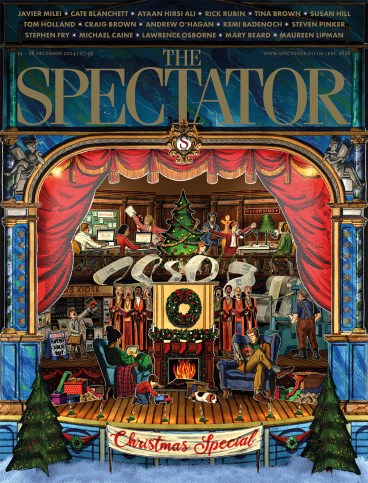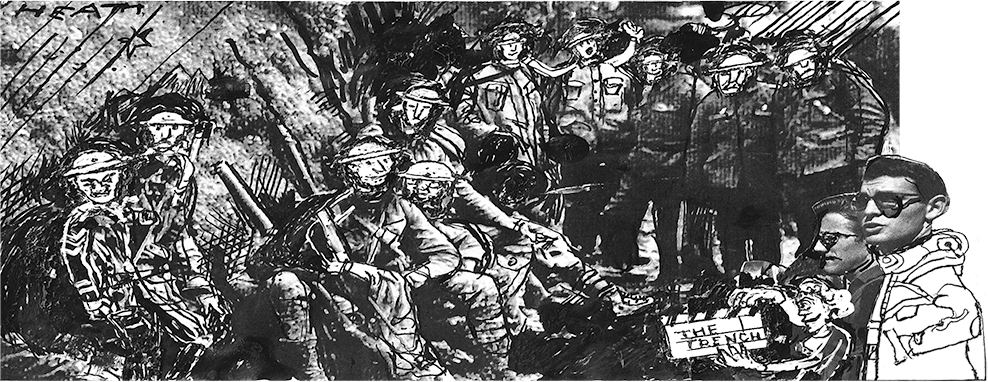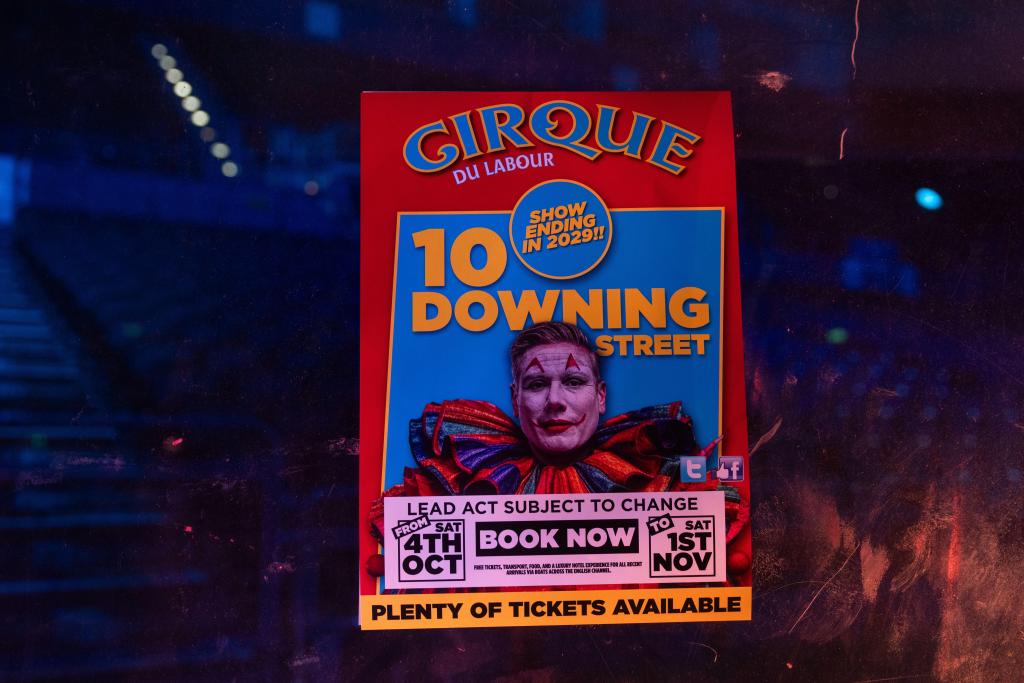
Anniversaries. Back in mid-December 1998, 26 years ago to the month, we wrapped my first (and probably only) feature film as a director, The Trench. I always think about the film on 11 November, because during the shoot we observed a uniquely different minute’s silence in the labyrinth of trenches we had constructed on a soundstage at Bray Studios in Berkshire. The film follows a squad of young soldiers as they wait, over two fraught days in 1916, for the Battle of the Somme to begin. We paused filming at 11 a.m. and fell silent. I was standing in the frontline trench with a dozen young actors who were all in their totally authentic first world war uniforms, Lee-Enfield rifles in their hands. Time travel. Among the then pretty-much-unknown cast gathered in that trench were Daniel Craig, Cillian Murphy, Ben Whishaw, Danny Dyer, James D’Arcy, Paul Nicholls and Julian Rhind-Tutt. It was a spooky, surreal and very moving experience: a lot of these actor/soldiers were going to ‘die’ at the end of the film when they went over the top. I auditioned more than 120 actors. I couldn’t have assembled this astonishingly prescient cast without the one-and-only Mary Selway, late doyenne of casting directors – who now, rightly, has a Bafta named after her. Mary found these young up-and-comers and we screen-tested each one of them. I still have all the videotapes, by the way, in my archive.
My 18th novel has just been published – a Cold War espionage novel, my fourth espionage novel. What is it about this genre that attracts so many literary novelists? From Joseph Conrad to Somerset Maugham, Graham Greene, Elizabeth Bowen, Ian McEwan, John Banville, Muriel Spark, Sebastian Faulks, Helen Dunmore – all have moonlighted in the world of spies and spying. My own theory is that at the core of the serious spy novel lie toothsome, rich concepts – identity, betrayal, duplicity, mendacity – that are all perfect grist to the novelist’s mill. These potent abstract nouns also figure to a significant degree in our own lives, but set them in the context of espionage and they suddenly take on new import, new heft. Paradoxically, what the spy novel does, it seems to me, is that while appearing to treat a rarefied, exciting and, by definition, secret and unknown world, it actually deals in values, emotions and complexities of human behaviour that we all totally understand, instinctively. Who has not lied to or betrayed someone, or been betrayed or lied to in turn? Who has not changed or modified their identity, subtly or significantly, for an hour or a week, to gain special advantage, to impress, to conceal, to woo? The methods and textures, the tropes and ways of the spy are, surprisingly, very close to our own ordinary lives. It could be argued that the world of the spy novel may actually be the best analogue of the human condition, writ large.
Anton Chekhov was born on 29 January 1860. His 165th birthday is coming up fast (he died aged 44). I have a fully fledged Chekhov obsession, but he’s even more on my mind currently as I’ve written the libretto to an opera based on one of his short stories, A Visit to Friends, the score supplied by the eminent modern-classical composer Colin Matthews. It’s an interesting story in Chekhov’s oeuvre because it is the clear source of The Cherry Orchard and yet he mystifyingly excluded it from his collected works. My theory is that it was too autobiographical and Chekhov balked at revealing himself to his peers and posterity. The central character is chronically unable to return love when it is offered to him, preferring to run away. This was very much Chekhov’s own amatory problem – he was a true commitment-phobe. The other week I went to a full-length sing-through rehearsal of the opera. As a writer who has written plays, TV series and numerous films, I’m used to hearing my words spoken by actors, but hearing them sung to Colin’s superbly powerful and emotional music was an altogether different, wonderfully destabilising frisson. I’m still coming to terms with the experience. World premiere next year at the Aldeburgh Music Festival – I should have recovered by then.
A new literary discovery this year was a book called The Aphorisms of Franz Kafka. For me, Kafka – like Chekhov – is one of those writers whose life fascinates as much as the work. I’m deeply intrigued by Kafka’s self-obsessed, troubled personality, though I’ve never thought of him as an aphorist. However, his aphorisms turn out to be as Kafkaesque as you might expect. Here’s an example: ‘From the true opponent, boundless courage flows into you.’ I had promised myself that this piece would be a Trump-free zone but Kafka’s aphorism seems particularly germane as we confront the next four complicated, difficult years.
William Boyd’s Gabriel’s Moon is out now.







Comments